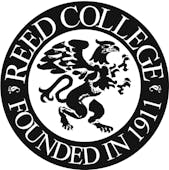Darius Rejali, professor of political science at Reed College, is a nationally recognized expert on government torture and interrogation. Iranian-born, Rejali has spent his scholarly career reflecting on violence, and, specifically, reflecting on the causes, consequences, and meaning of modern torture in our world. His work spans concerns in political science, philosophy, sociology, anthropology, history, and critical social theory.
Torture and Democracy (Princeton, 2007) is Rejali’s most recent book. It is an unrelenting examination of the use of torture by democracies in the 20th century. As democracy, human rights, and the free press blossomed after World War II, so did the market for “clean” torture techniques that leave no evidentiary scars, such as the use of drugs, stress positions, and waterboarding. Rejali reveals the most controversial Western intelligence-gathering techniques, explains their origins, and questions if their use actually hinders the torturer’s ability to gather credible intelligence.
Torture and Democracy won the 2007 Human Rights Book of the Year Award from the American Political Science Association. The award is decided on the merits of the book's scholarship and for its capacity to influence policy or bring about change in human rights conventions. It also won the biennial 2009 Raphael Lemkin Award from the Institute for the Study of Genocide, New York, for the best non-fiction work in English which addresses the causes of genocide and crimes against humanity.
Torture and Democracy has also placed Rejali in the international media spotlight, positioning him among the world's preeminent scholars on torture. He has been interviewed so often, in the wake of the Abu Ghraib scandal, that a Google search of his name returns over 20,000 results from news sources that range from Democracy Now! to Al Jazeera and from the BBC to the Washington Post.
In 2009, the J. William Fulbright Foreign Scholarship Board awarded Reed College professor of political science Darius Rejali with the Danish Distinguished Chair in Human Rights and International Studies. Awards in the Fulbright Distinguished Chairs Program are among the most prestigious appointments in the Fulbright Scholar Program. The Danish Distinguished Chair is a research award at the Danish Center for International Studies and Human Rights
In 2003, the Carnegie Corporation of New York named Rejali a Carnegie Scholar and awarded him a grant of $100,000. This grant supported Rejali's research, and in particular his forthcoming work, Approaches to Violence (Princeton, 2008), which is based on a course he pioneered at Reed College. Rejali was one of thirteen scholars selected in 2003 in this prestigious and highly competitive national competition across multiple fields. Carnegie Scholars cannot apply for this honor; they must be nominated. Rejali is the first Iranian American to receive the honor.
Rejali is also the author of Torture and Modernity: Self, Society, and State in Modern Iran (Westview, 1994) as well as many recent articles on violence including masculinity and torture, media representations of torture, American public opinion on torture, the political thought of Osama bin Ladin, the history of electric torture, the practice of stoning in the Middle East, the treatment of refugees who have been tortured, and theories of ethnic rape.
Rejali has been a member of the Reed faculty since 1989. He earned a Ph.D. in political science from McGill University and a B.A. in philosophy from Swarthmore College. He is a member of the editorial board of Human Rights Review.
Experience
-
–presentProfessor of Political Science , Reed University
- Article Feed
- Joined


